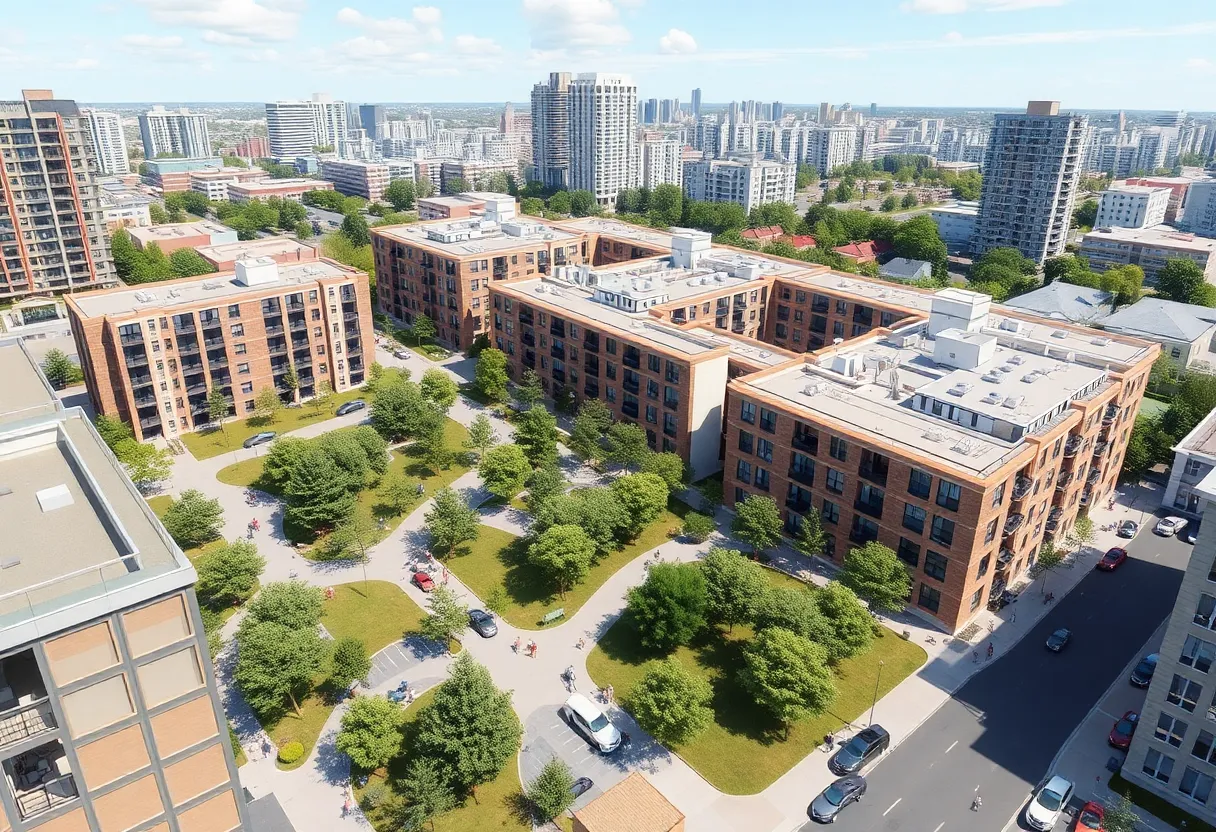News Summary
Overland Park city officials are evaluating a proposed $230 million public subsidy for Black & Veatch’s Overland Park Plaza II project. This plan aims to transform a 78-acre campus into a $1.12 billion mixed-use development, which includes housing, retail, and other amenities. Despite the potential benefits, the subsidy has sparked criticism regarding its impact on local competition and the fairness of using taxpayer funds for a private firm. A public hearing will provide residents with the opportunity to share their views on the proposal.
Overland Park City Officials Explore $230 Million Subsidy Proposal for Major Development
City leaders consider significant public funding for Black & Veatch’s mixed-use project
Officials in Overland Park are deliberating on a potential public subsidy package totaling nearly $230 million aimed at a major real estate development led by the renowned engineering firm Black & Veatch. The proposed project, named Overland Park Plaza II, encompasses a vast 78-acre campus transformation into a $1.12 billion mixed-use development that will include residential, commercial, and recreational spaces.
The grand vision includes plans for a new corporate headquarters, approximately 1,900 residential units, a hotel, diverse retail spaces, a public park, and around 6,000 parking spots. The anticipated financial commitment from local government sources comprises $227.7 million in tax increment financing (TIF), $19.9 million from a special sales tax district, and various tax exemptions related to construction sales. Collectively, these incentives would fund about 22% of the total project cost.
Controversy Surrounds Public Funding for Private Development
The push for these subsidies raises eyebrows, particularly as the site is categorized as a “conservation area” under Kansas law—a designation typically reserved for properties in need of revitalization. Critics argue that this classification is misleading since the site is not in disrepair but is instead being repositioned, a strategy commonly seen in private-sector initiatives that usually forgo public funding.
This situation mirrors past cases within the area where private enterprises have sought taxpayer aid for modifying or enhancing their holdings. Critics also assert that similar subsidies often fail to deliver genuine economic benefits and instead encourage job relocations or mere investment shifts rather than real growth.
Market Competition and Transparency Concerns
Mayor Curt Skoog addressed the situation, stating that Black & Veatch has no intentions of relocating its jobs but is using this moment to seek financial backing. The present subsidy request significantly surpasses the assistance the company received in earlier years, which included industrial revenue bonds and tax abatements in 2009 and 2012.
As Black & Veatch diversifies into residential, hospitality, and commercial sectors, concerns mount about potential advantages gained through taxpayer-supported funding. Competing developers may find themselves at a disadvantage, shouldering all costs while Black & Veatch benefits from substantial financial aid. This scenario has raised alarms about the potential distortion of the local real estate market and the adverse impact on competition.
Implications of Economic Development Subsidies
The lack of transparency regarding the usage of public funds for predominantly private investments poses further questions for city leadership. As discussions continue, city leaders are urged to reflect on whether they are fostering equitable governance or merely aiding a single firm’s expansion at taxpayers’ expense. The forthcoming public hearing, scheduled for July 7 at Overland Park City Hall, will grant residents the opportunity to participate in the discussion either onsite or via an online platform.
Previous audits conducted by the Kansas Legislature revealed that economic development subsidies often do not live up to their projected objectives. These findings suggest that the financial commitments demanded may ultimately impede essential public services, including schools and infrastructure upkeep. As the city stands on the precipice of a potentially groundbreaking project, the balance between private ambition and public accountability remains a critical conversation for the community.
Deeper Dive: News & Info About This Topic
Additional Resources
- Kansas City Opinion
- Wikipedia: Economic Development
- MSN News
- Google Search: Overland Park subsidy debates
- Johnson County Post
- Google Scholar: Tax Increment Financing
- KSHB News
- Encyclopedia Britannica: Subsidy
- National Review
Author: Construction CA News
The CALIFORNIA STAFF WRITER represents the experienced team at constructioncanews.com, your go-to source for actionable local news and information in California and beyond. Specializing in "news you can use," we cover essential topics like product reviews for personal and business needs, local business directories, politics, real estate trends, neighborhood insights, and state news affecting the area—with deep expertise drawn from years of dedicated reporting and strong community input, including local press releases and business updates. We deliver top reporting on high-value events such as the Rose Parade, Coachella, Comic-Con, and the California State Fair. Our coverage extends to key organizations like the California Building Industry Association and Associated General Contractors of California, plus leading businesses in technology and entertainment that power the local economy such as Apple and Alphabet. As part of the broader network, including constructionnynews.com, constructiontxnews.com, and constructionflnews.com, we provide comprehensive, credible insights into the dynamic landscape across multiple states.


